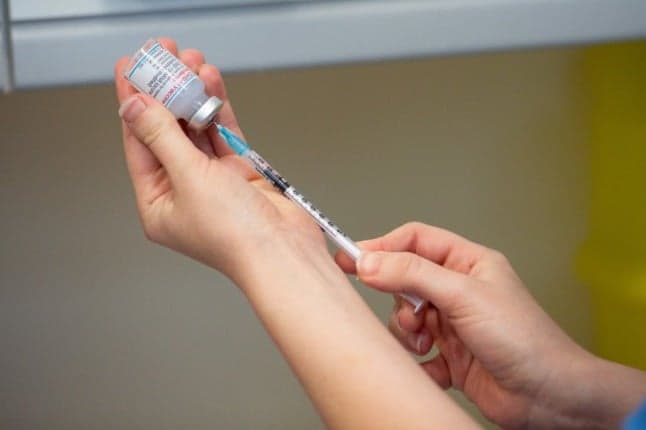Switzerland to change travel rules for those vaccinated abroad from Monday

People vaccinated abroad with AstraZeneca, along with other EMA-approved vaccines, will be able to get Switzerland's Covid certificate from Monday.
From Monday, September 20th, foreign visitors vaccinated abroad with a jab approved by the European Medicines Agency will be able to obtain a Swiss Covid certificate enabling them to enter restaurants and venues.
The change applies to anyone wanting to get Switzerland's Covid certificate, whether that be people who live in Switzerland but were vaccinated abroad, or business or tourism travellers.
It will be a welcome change, particularly for people from the UK, India or Israel, many of whom have been vaccinated with AstraZeneca.
Prior to September 20th, only vaccines approved for use in Switzerland were accepted for the Covid certificate - which meant that people who are fully vaccinated with AstraZeneca were unable to get the document.
As at September 20th, four vaccines are approved by the EMA: AstraZeneca, PfizerBiontech, Moderna and Johnson and Johnson.
The list of vaccines accepted in order to enter Switzerland is longer and includes, among others, Chinese vaccine Sinopharm.
READ MORE: Which vaccines are accepted for entry to Switzerland?
Switzerland's Covid certificate - which shows that someone is either fully vaccinated, has recovered from the virus recently or has tested negative - allows entry to bars, restaurants, nightlife venues, gyms and some private events.
The certificate was put in place on the 13th of September, bringing the rules in Switzerland broadly in line with its neighbours.
Despite its wealth and strong health system, Switzerland is lagging other European countries when it comes to vaccination rates.
An estimated 53 percent of Swiss are fully vaccinated, compared with 61 percent of the EU.
READ MORE: Switzerland announces tougher Covid border rules for travellers
Bern said the measures were a bid to prevent a spike in cases once people start returning from their autumn vacation, following a surge in Delta variant infections after the summer holidays.
Comments (1)
See Also
From Monday, September 20th, foreign visitors vaccinated abroad with a jab approved by the European Medicines Agency will be able to obtain a Swiss Covid certificate enabling them to enter restaurants and venues.
The change applies to anyone wanting to get Switzerland's Covid certificate, whether that be people who live in Switzerland but were vaccinated abroad, or business or tourism travellers.
It will be a welcome change, particularly for people from the UK, India or Israel, many of whom have been vaccinated with AstraZeneca.
Prior to September 20th, only vaccines approved for use in Switzerland were accepted for the Covid certificate - which meant that people who are fully vaccinated with AstraZeneca were unable to get the document.
As at September 20th, four vaccines are approved by the EMA: AstraZeneca, PfizerBiontech, Moderna and Johnson and Johnson.
The list of vaccines accepted in order to enter Switzerland is longer and includes, among others, Chinese vaccine Sinopharm.
READ MORE: Which vaccines are accepted for entry to Switzerland?
Switzerland's Covid certificate - which shows that someone is either fully vaccinated, has recovered from the virus recently or has tested negative - allows entry to bars, restaurants, nightlife venues, gyms and some private events.
The certificate was put in place on the 13th of September, bringing the rules in Switzerland broadly in line with its neighbours.
Despite its wealth and strong health system, Switzerland is lagging other European countries when it comes to vaccination rates.
An estimated 53 percent of Swiss are fully vaccinated, compared with 61 percent of the EU.
READ MORE: Switzerland announces tougher Covid border rules for travellers
Bern said the measures were a bid to prevent a spike in cases once people start returning from their autumn vacation, following a surge in Delta variant infections after the summer holidays.
Join the conversation in our comments section below. Share your own views and experience and if you have a question or suggestion for our journalists then email us at [email protected].
Please keep comments civil, constructive and on topic – and make sure to read our terms of use before getting involved.
Please log in here to leave a comment.